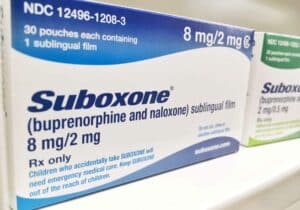Kratom, a plant that has captured attention for its potential medicinal properties, has increasingly been used in recent years. While some advocate for its benefits, many individuals report experiencing withdrawal symptoms when they stop using it. It’s important to clarify that Kratom is not recognized by the Food and Drug Administration (FDA) for any medical use and is labeled as a drug of concern due to potential health risks.
This guide aims to offer a detailed look at Kratom withdrawal, how long Kratom stays in the system, and what rehabilitation from Kratom may involve.
If you or someone you know is struggling with Kratom use, please don’t hesitate to reach out for help. Contact our Kratom rehab center at 423-564-6114 or fill out our online form. Our admissions team is prepared to offer the support and guidance necessary to address Kratom addiction effectively.
What is Kratom?
Kratom is a tropical evergreen tree native to Southeast Asia, specifically found in regions like Thailand, Malaysia, Indonesia, and Papua New Guinea. For centuries, the leaves of the Kratom tree have been used in traditional medicine to alleviate pain, anxiety, depression, and even to assist in treating opioid addiction.
The primary active compounds in Kratom, mitragynine and 7-hydroxymitragynine, interact with opioid receptors in the brain, producing effects similar to opioid medications. These properties have led to Kratom’s increasing use as an alternative method for managing pain and mitigating opioid withdrawal symptoms. However, it’s crucial to recognize that Kratom can lead to addiction and dependency, highlighting the need for careful consideration and potentially, regulated use.
What are Kratom Withdrawal Symptoms?
Withdrawal from Kratom can resemble the symptoms associated with opioid withdrawal, though typically they are less intense.
Research shows that Kratom withdrawal usually lasts between 3 to 10 days. Common symptoms include nausea, muscle aches, and cravings for Kratom. Using Kratom alters brain chemistry similarly to other substances that can lead to addiction, impacting the brain’s structure and function.
Kratom interacts with opioid receptors much like morphine, which is why its withdrawal symptoms can be similar to those of opioids. However, studies suggest that the intensity and duration of Kratom withdrawal are generally less severe than those of opioids.
Is Kratom withdrawal dangerous? It is generally not considered life-threatening. The symptoms often resemble those of a severe cold, making it uncomfortable but not hazardous. However, individuals with a history of substance use should seek medical advice before discontinuing Kratom, especially since abrupt cessation can pose risks.
For those using Kratom as a substitute for opioids, there is an increased risk of relapse into opioid use, which can be dangerous due to the rapid development of opioid tolerance and the increased risk of overdose.
Psychological symptoms of Kratom withdrawal may include:
- Depression
- Anxiety
- Insomnia
- Mood swings
- Irritability
- Agitation
Physical symptoms of Kratom withdrawal can include:
- Nausea and vomiting
- Changes in blood pressure and heart rate
- Decreased appetite
- Muscle aches
- Fever
- Sweating and hot flashes
- Severe abdominal cramps
- Watery eyes and runny nose
- Jerky movements
- Diarrhea
- Blurred vision
- Dilated pupils
- Seizures
Understanding these symptoms can help prepare individuals and their loved ones for the withdrawal process and encourage seeking professional guidance to manage and mitigate these effects effectively.
When Do Kratom Withdrawal Symptoms Start?
The onset and severity of Kratom withdrawal symptoms can vary widely from one person to another.
Typically, symptoms start to appear between 12 to 48 hours after the last dose of Kratom has been taken. The length of time these symptoms persist can range from three to five days, although this can vary greatly. Each individual’s withdrawal experience is unique—some might experience only mild symptoms, while others could face more severe effects.
How Long Does Kratom Withdrawal Last?
Not all individuals who use Kratom will develop a dependence or experience withdrawal symptoms.
However, the likelihood of developing dependence and experiencing withdrawal symptoms increases with greater and more frequent usage of Kratom. Those who consume more than 5 grams per day are particularly at risk for experiencing negative outcomes.
People who use Kratom for pain relief or as a means to manage withdrawal symptoms from other substances are especially susceptible to developing dependence and facing withdrawal symptoms once they stop using Kratom.
Kratom Sleep Issues
Kratom’s impact on sleep can vary. While it may cause sleep disturbances, not all users experience this effect. Some users report feeling drowsy, yet taking Kratom close to bedtime might disrupt sleep in a way similar to caffeine.
At lower doses, Kratom has been known to increase alertness and energy levels, which might make it difficult to relax and fall asleep. Furthermore, insomnia can be a common issue during Kratom withdrawal, as the body adjusts to the absence of the substance it has grown chemically dependent on, exacerbating sleep difficulties.
Kratom Withdrawal Timeline
The experience of withdrawing from Kratom varies widely among individuals, influenced by factors such as duration of use, dosage, and personal health. Below is a general timeline for Kratom withdrawal:
- Days 1-2: Initial symptoms begin to surface during the first two days. Common symptoms include anxiety, restlessness, muscle aches, and flu-like symptoms such as sweating and a runny nose.
- Days 3-5: Symptoms typically peak during this period. Individuals may experience increased physical and psychological discomfort, including heightened anxiety, depression, insomnia, and cravings for Kratom.
- Days 6-14: Symptoms gradually begin to decrease in severity. Persistent issues like anxiety, depression, and cravings start to lessen, and there is often a noticeable improvement in overall well-being.
- Days 15 and beyond: Most individuals will see a significant reduction in withdrawal symptoms by this stage, with some potentially fully resolved. However, some may continue to experience lingering symptoms such as anxiety or depression for weeks or even months. Ongoing support and treatment are recommended for these issues.
This timeline is a general outline, and the actual experience can vary based on factors like the amount and frequency of Kratom used, as well as individual physiological responses.
Is Kratom Withdrawal Dangerous?
Kratom withdrawal is generally less intense compared to opioids or other substances, but it can still pose substantial discomfort and challenges. While it is not typically considered life-threatening, the withdrawal process can exacerbate existing mental health conditions such as depression or anxiety, possibly leading to relapse. Those experiencing withdrawal are advised to seek medical guidance, especially if they have pre-existing mental health issues.
Can I Detox From Kratom at Home?
While it’s tempting to attempt Kratom detox at home using over-the-counter medications, or even by quitting cold turkey, these methods have their limitations. They may alleviate some symptoms but are generally less effective and potentially riskier than professional oversight.
Home detox risks include relapse due to the discomfort of withdrawal symptoms and possible medical or psychiatric complications. Professional rehab facilities greatly reduce these risks. In these settings, healthcare professionals are on hand to manage both the physical and mental challenges associated with Kratom withdrawal, significantly reducing the likelihood of relapse. At Iris Wellness Group we offer medically-supervised Outpatient Detox for Kratom in Chattanooga, TN, contact us today at 423-564-6114 or fill out our online form to begin your detox journey.
Managing Kratom Withdrawal Symptoms
Dealing with the symptoms of Kratom withdrawal can be challenging, but several strategies can help make this period more manageable:
- Pain Relief: Common over-the-counter pain medications like Tylenol, aspirin, or ibuprofen are effective for easing muscle aches and reducing fever.
- Stay Hydrated: Withdrawal often involves vomiting, diarrhea, and excessive sweating, which can lead to dehydration. Drinking ample fluids, including water and electrolyte-replenishing solutions like Pedialyte, is crucial.
- Anti-Diarrheal Medication: Over-the-counter remedies such as Pepto-Bismol or Imodium can help control diarrhea.
- Eating Habits: Eating small, frequent meals that are bland can help soothe nausea, vomiting, and stomach upset.
- Nausea Relief: Over-the-counter antiemetics like Gravol, Pepto-Bismol, and Dramamine can alleviate nausea and vomiting. Natural remedies like ginger chews or tea are also effective.
- Relaxation Techniques: Techniques such as breathing exercises, meditation, and yoga can significantly alleviate pain, anxiety, and insomnia.
- Adequate Sleep: Aiming for 6-8 hours of sleep per night and taking naps when necessary can help reduce irritability and anxiety.
- Heat and Cold Therapy: Applying heating pads, taking hot baths, or using ice packs can offer relief from muscle aches.
- Engage in Hobbies: Activities like watching movies, reading, doing puzzles, or listening to music can keep your mind occupied and divert attention from withdrawal symptoms.
- Emotional Support: Reaching out to friends or family for support can provide emotional relief, aiding both physical and emotional recovery.
- Professional Help: Engaging with a professional treatment center is the most effective and safest way to manage withdrawal symptoms and reduce the risk of relapse. These centers offer a combination of medication, therapy, and support, essential for recovering from Kratom addiction.
Kratom Withdrawal Treatment at Iris Wellness Group
At Iris Wellness Group we specialize in providing targeted and compassionate treatment for individuals struggling with Kratom withdrawal in Chattanooga, TN. Recognizing the unique journey of each person affected by Kratom addiction, our dedicated team offers personalized care plans designed to address the specific needs and challenges of our clients. Our goal is to support individuals on their path to recovery, helping them achieve a healthier, substance-free lifestyle through a comprehensive approach to treatment.
Treatment Options for Kratom Withdrawal:
- Outpatient Detox: Offers medically supervised detoxification services to safely manage withdrawal symptoms in an outpatient setting.
- Outpatient Treatment: Designed for those who require flexible treatment schedules without intensive daily commitments.
- Intensive Outpatient Program (IOP): Ideal for individuals needing more support than standard outpatient care, providing a structured therapy schedule while allowing patients to live at home.
- Partial Hospitalization Program (PHP): Serves as a bridge between inpatient care and outpatient treatment, offering comprehensive day-long therapy sessions for more intensive care without an overnight stay.
To complement our range of treatment options, Iris Wellness Group integrates a holistic approach to therapy, targeting the multifaceted aspects of Kratom abuse. Understanding that recovery is not one-size-fits-all, we tailor our therapy programs to meet the individual needs of our clients, focusing on not just overcoming addiction but also on fostering long-term wellness and resilience.
Therapies Offered for Kratom Withdrawal:
- Cognitive Behavioral Therapy (CBT): Aims to identify and modify negative thought patterns and behaviors related to cannabis use.
- Individual Therapy: Offers a private setting for patients to explore personal issues and challenges related to their addiction.
- Group Therapy: Provides a supportive environment where individuals can share experiences and strategies for coping with addiction.
- Family Therapy: Engages family members in the treatment process to heal relationships and build a supportive home environment for recovery.
If you or someone you care about be grappling with Kratom withdrawal or addiction, it’s crucial to act now. Contact our Kratom rehab in Chattanooga, TN at 423-401-9630, to embark on the path towards a life free from drug dependence.












